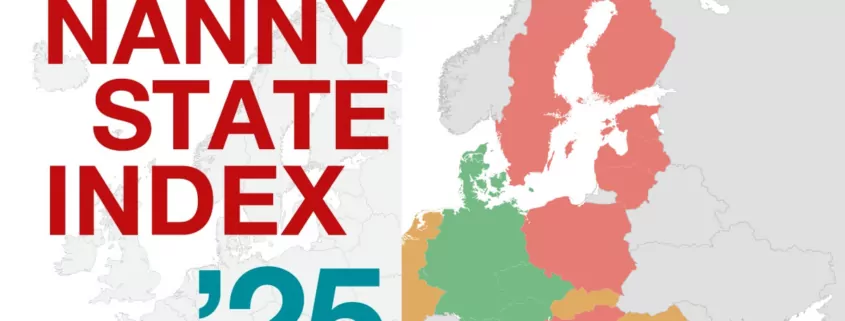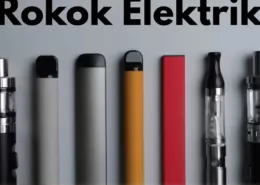European “Nanny State Index” Ranks Nations on Tobacco and Vape Restrictions
A 2025 “Nanny State Index” report offers a comparative look at how European countries regulate lifestyle choices, including a significant focus on tobacco and “safer nicotine” products like e-cigarettes and nicotine pouches. The index suggests that while many nations are tightening controls, approaches vary widely, with some imposing outright bans and others focusing on high taxation and advertising restrictions. Turkey, Lithuania, Finland, Hungary, and the United Kingdom emerge as some of the jurisdictions with the most stringent measures targeting traditional smoking and alternative nicotine delivery systems.
The report highlights that Turkey is considered the “nanniest” state overall, being the only one with an outright ban on e-cigarettes. While a form of traditional snuff (‘enfiye’) remains legal and nicotine pouches are not explicitly banned, heated tobacco products are also prohibited. Furthermore, Turkey mandates plain packaging for cigarettes, bans in-store tobacco displays, and prohibits cigarette vending machines.
Within the European Union, Lithuania scores high for its interventionist policies. Beyond its strict alcohol controls, Lithuania has also taken a tough stance on nicotine. It has restricted the sale of energy drinks to under-18s (often associated with youth risk behaviors) and has a high score for its anti-smoking measures. Notably, smoking is prohibited on all balconies and terraces of apartment buildings if even one resident objects.
The United Kingdom ranks seventh in the overall table but is noted for taking the toughest stance on tobacco taxation, with a reported €411 tax per kilogram. England banned cigarette vending machines in 2011, and the UK is progressing with a “generational ban” that will prohibit anyone born on or after January 1, 2009, from ever legally purchasing tobacco. This reflects a strong commitment to creating a smoke-free future.
Hungary also features prominently, placing second for anti-smoking measures and third for measures discouraging the use of “safer nicotine” alternatives. Finland is another Nordic country with high scores for its restrictive tobacco policies.
In contrast, Germany is described as one of the “best countries to drink, smoke, vape, and eat in the EU” due to its comparatively lower taxes on tobacco and fewer restrictions. While Germany does impose a tax on e-cigarette fluid (expected to rise to €0.32 per ml in 2026), comprehensive smoking bans in public places are only in effect in three out of its 16 states. Interestingly, nicotine pouches are reported to be “de facto” banned in Germany because they are classified as food products, and food cannot legally contain nicotine there.
“Nanny State” Index 2025: Focus on Tobacco and Safer Nicotine
The following table extracts data from the 2025 Nanny State Index, focusing on scores related to “Safer Nicotine” (e.g., vapes, nicotine pouches) and “Smoking” (traditional tobacco). Higher scores indicate stricter regulations. (Maximum score for Safer Nicotine: 16.7, Smoking: 16.7, Total Index: 100).
| No. | Country | Safer Nicotine Score (out of 16.7) | Smoking Score (out of 16.7) | Overall Index Total (out of 100) | 2023 Overall Ranking |
|---|---|---|---|---|---|
| 1 | Turkey | 13.8 | 10.0 | 47.2 | 1 |
| 2 | Lithuania | 10.9 | 10.1 | 42.8 | 3 |
| 3 | Finland | 8.9 | 12.1 | 37.8 | 4 |
| 4 | Hungary | 9.8 | 13.5 | 37.5 | 5 |
| 5 | Ireland | 2.2 | 12.5 | 36.9 | 6 |
| 6 | Latvia | 9.2 | 10.4 | 34.2 | 8 |
| 7 | United Kingdom | 2.3 | 15.0 | 31.7 | 11 |
| 8 | Poland | 5.2 | 8.5 | 30.5 | 9 |
| 9 | Estonia | 7.2 | 9.4 | 28.6 | 7 |
| 10 | Sweden | 4.6 | 6.4 | 27.8 | 10 |
| 11 | France | 2.9 | 12.3 | 26.7 | 13 |
| 12 | Netherlands | 8.8 | 12.0 | 25.8 | 15 |
| 13 | Slovenia | 7.3 | 9.7 | 25.7 | 12 |
| 14 | Croatia | 4.6 | 9.6 | 23.3 | 14 |
| 15 | Romania | 5.1 | 12.2 | 22.6 | 16= |
| 16 | Greece | 6.1 | 10.7 | 21.4 | 18 |
| 17 | Slovakia | 5.0 | 9.0 | 21.1 | 25 |
| 18 | Belgium | 7.1 | 10.4 | 20.5 | 22 |
| 19 | Portugal | 5.1 | 7.7 | 20.4 | 19 |
| 20= | Cyprus | 6.5 | 7.9 | 19.1 | 20 |
| 20= | Denmark | 5.7 | 8.8 | 19.1 | 16= |
| 22 | Bulgaria | 3.3 | 10.2 | 17.6 | 24 |
| 23 | Austria | 4.8 | 6.6 | 17.4 | 21 |
| 24 | Malta | 3.3 | 7.9 | 17.0 | 23 |
| 25 | Spain | 3.3 | 7.6 | 15.9 | 26= |
| 26 | Czechia | 3.2 | 8.6 | 14.5 | 29 |
| 27 | Italy | 2.0 | 7.0 | 13.5 | 28 |
| 28 | Luxembourg | 4.0 | 4.7 | 12.4 | 26= |
| 29 | Germany | 4.1 | 5.2 | 11.7 | 30 |
The report underscores a general trend across many European nations to increase taxes and restrictions on traditional tobacco. However, the approach to newer nicotine products like vapes and pouches is more varied, ranging from outright bans in some cases (like Turkey for e-cigarettes) to high taxation or specific marketing and sales restrictions, often driven by concerns over youth uptake.
- Read the full: NANNY STATE INDEX 2025
- Malaysia Negeri Sembilan Backs Vape Ban, Awaits Clear Laws - August 5, 2025
- Is It Illegal to Vape or Smoke While Driving in Massachusetts? - August 5, 2025
- Austria Plans to Ban Disposable E-Cigarettes - August 5, 2025









